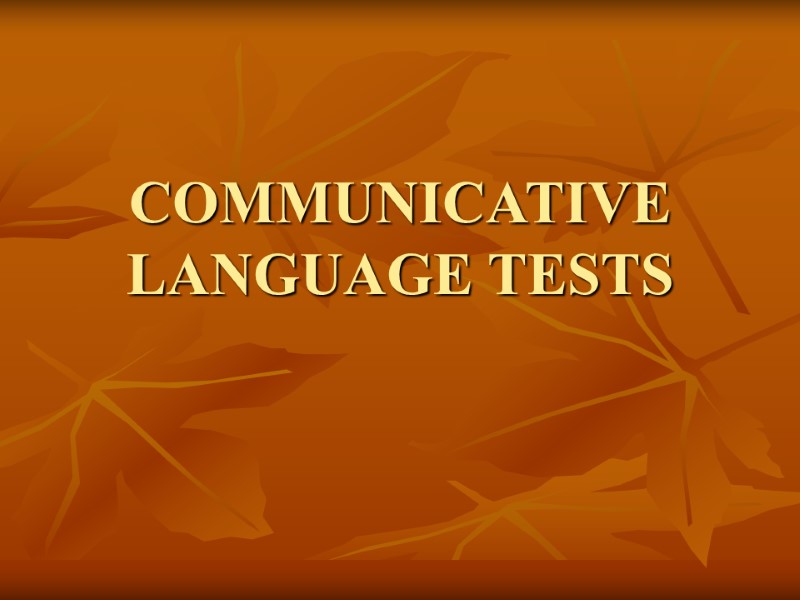 COMMUNICATIVE LANGUAGE TESTS
COMMUNICATIVE LANGUAGE TESTS
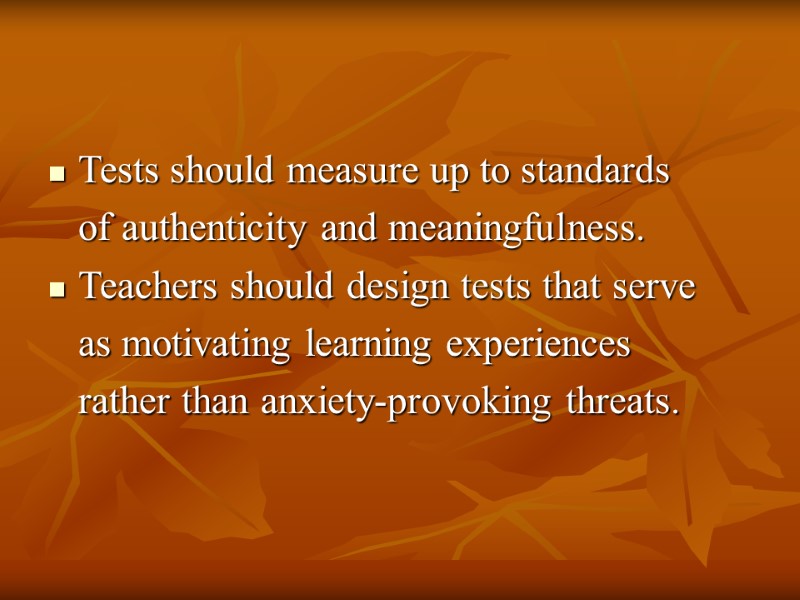 Tests should measure up to standards of authenticity and meaningfulness. Teachers should design tests that serve as motivating learning experiences rather than anxiety-provoking threats.
Tests should measure up to standards of authenticity and meaningfulness. Teachers should design tests that serve as motivating learning experiences rather than anxiety-provoking threats.
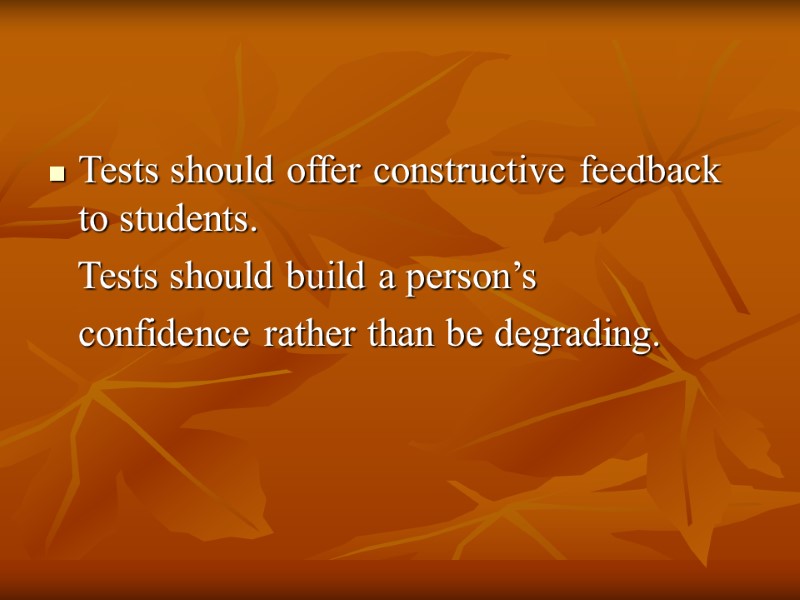 Tests should offer constructive feedback to students. Tests should build a person’s confidence rather than be degrading.
Tests should offer constructive feedback to students. Tests should build a person’s confidence rather than be degrading.
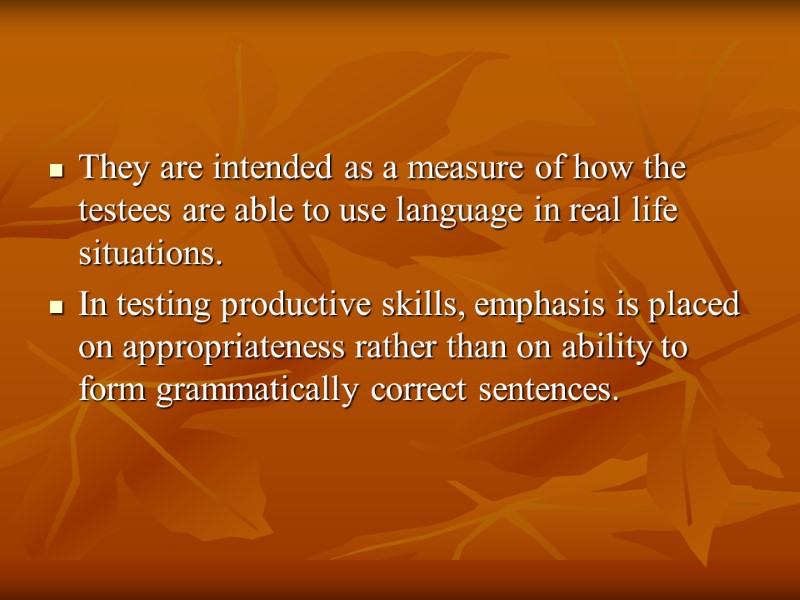 They are intended as a measure of how the testees are able to use language in real life situations. In testing productive skills, emphasis is placed on appropriateness rather than on ability to form grammatically correct sentences.
They are intended as a measure of how the testees are able to use language in real life situations. In testing productive skills, emphasis is placed on appropriateness rather than on ability to form grammatically correct sentences.
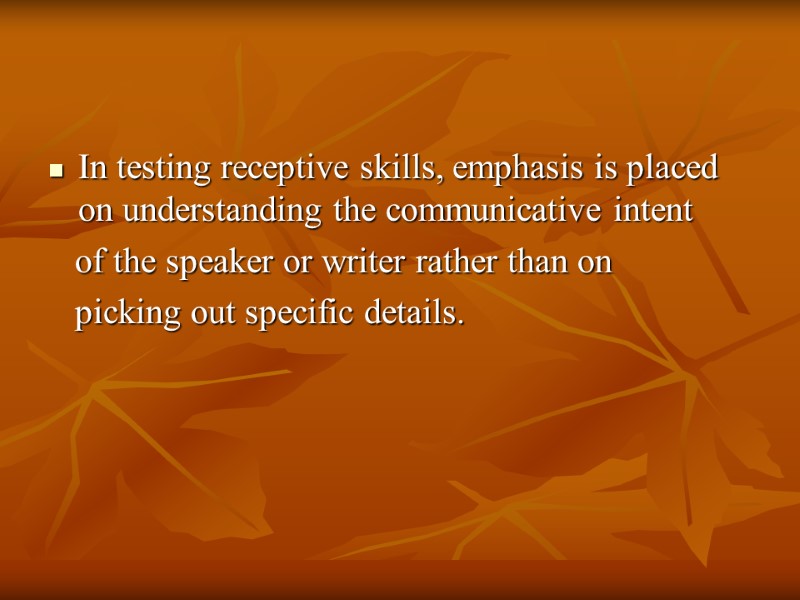 In testing receptive skills, emphasis is placed on understanding the communicative intent of the speaker or writer rather than on picking out specific details.
In testing receptive skills, emphasis is placed on understanding the communicative intent of the speaker or writer rather than on picking out specific details.
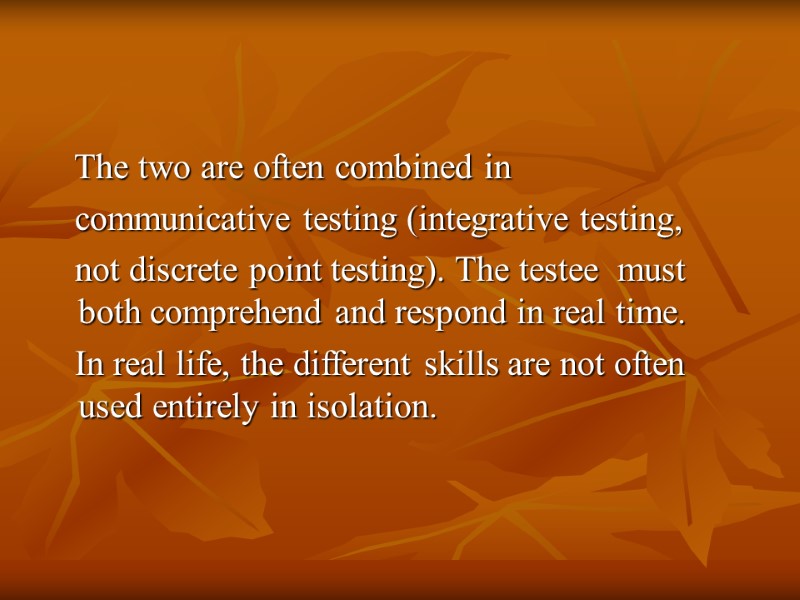 The two are often combined in communicative testing (integrative testing, not discrete point testing). The testee must both comprehend and respond in real time. In real life, the different skills are not often used entirely in isolation.
The two are often combined in communicative testing (integrative testing, not discrete point testing). The testee must both comprehend and respond in real time. In real life, the different skills are not often used entirely in isolation.
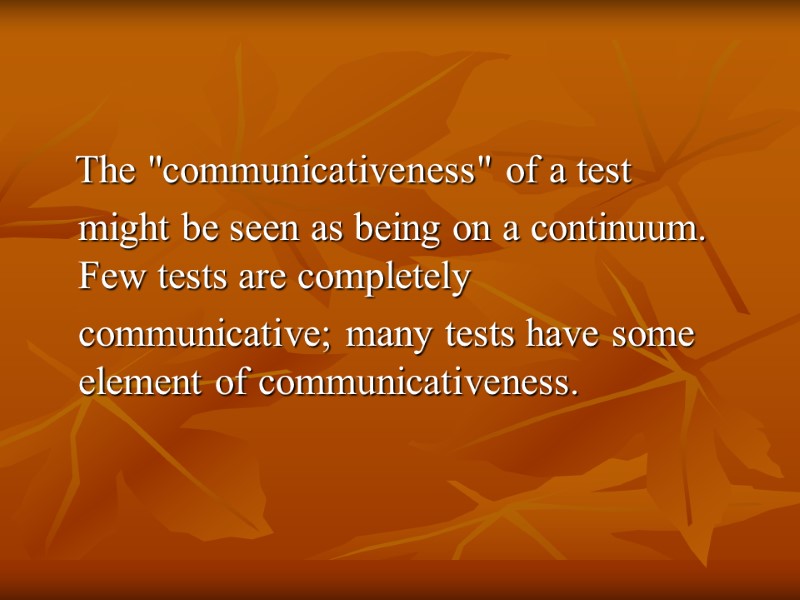 The "communicativeness" of a test might be seen as being on a continuum. Few tests are completely communicative; many tests have some element of communicativeness.
The "communicativeness" of a test might be seen as being on a continuum. Few tests are completely communicative; many tests have some element of communicativeness.
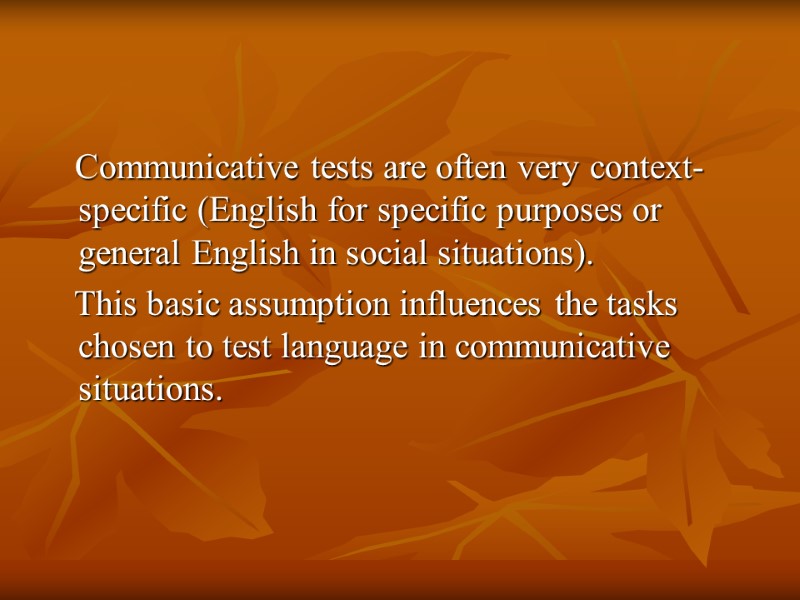 Communicative tests are often very context-specific (English for specific purposes or general English in social situations). This basic assumption influences the tasks chosen to test language in communicative situations.
Communicative tests are often very context-specific (English for specific purposes or general English in social situations). This basic assumption influences the tasks chosen to test language in communicative situations.
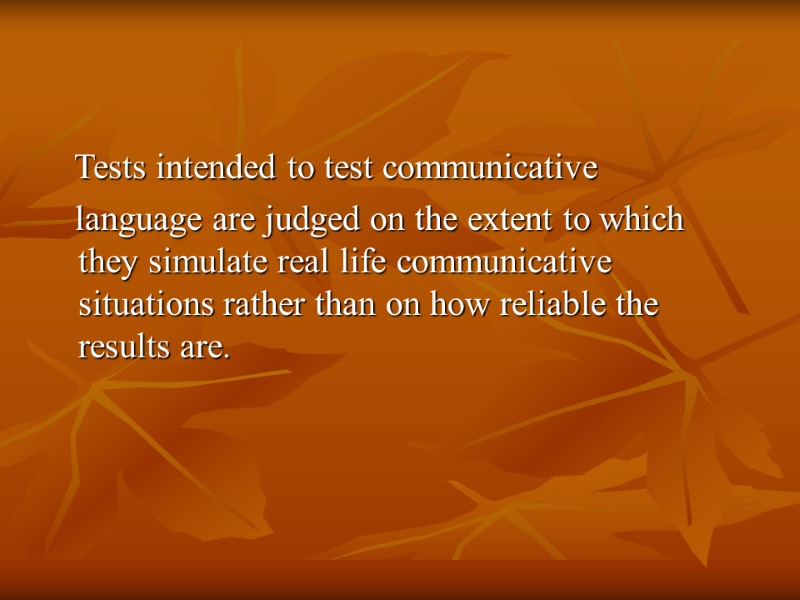 Tests intended to test communicative language are judged on the extent to which they simulate real life communicative situations rather than on how reliable the results are.
Tests intended to test communicative language are judged on the extent to which they simulate real life communicative situations rather than on how reliable the results are.
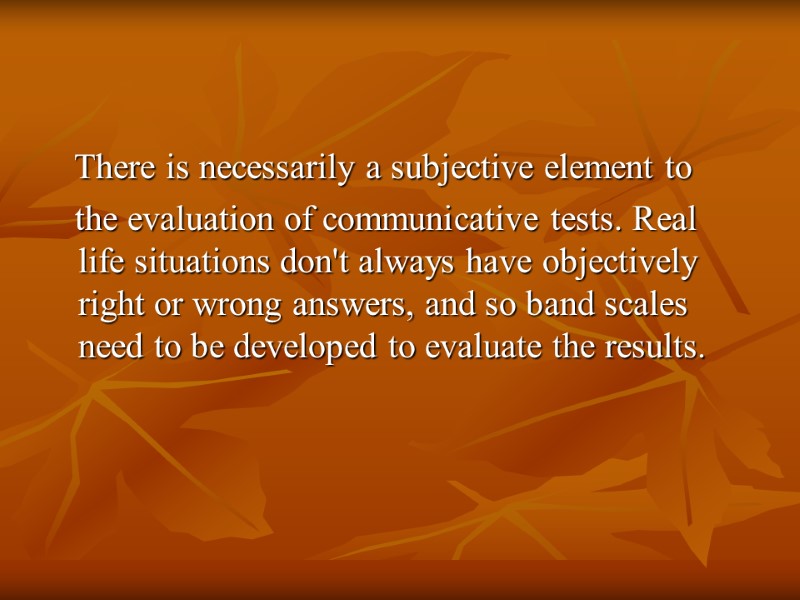 There is necessarily a subjective element to the evaluation of communicative tests. Real life situations don't always have objectively right or wrong answers, and so band scales need to be developed to evaluate the results.
There is necessarily a subjective element to the evaluation of communicative tests. Real life situations don't always have objectively right or wrong answers, and so band scales need to be developed to evaluate the results.
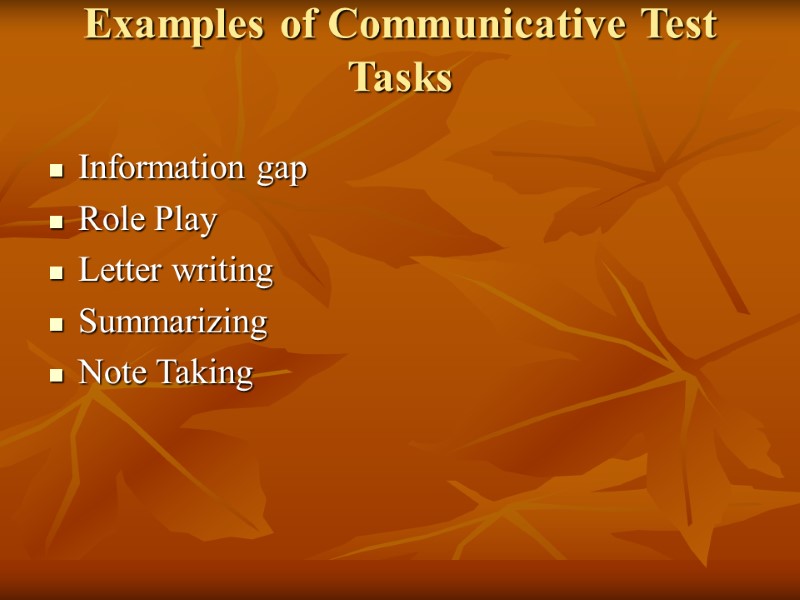 Examples of Communicative Test Tasks Information gap Role Play Letter writing Summarizing Note Taking
Examples of Communicative Test Tasks Information gap Role Play Letter writing Summarizing Note Taking
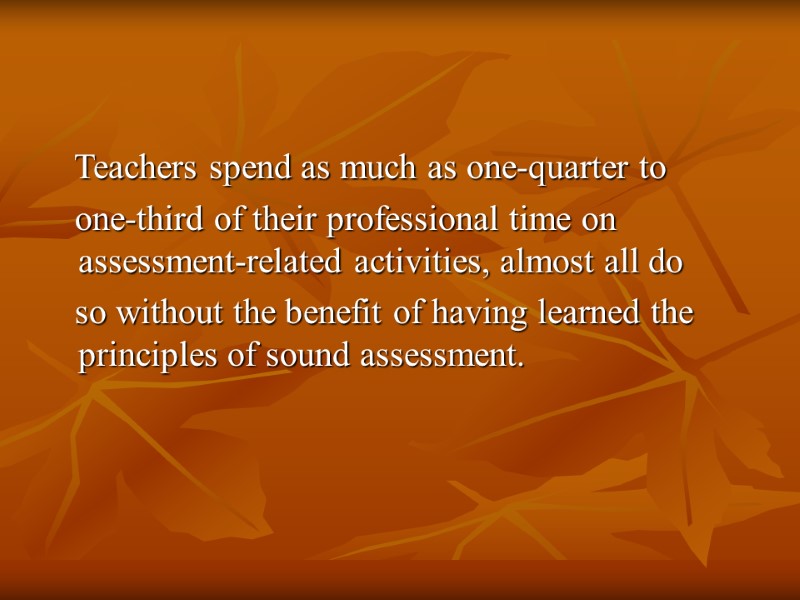 Teachers spend as much as one-quarter to one-third of their professional time on assessment-related activities, almost all do so without the benefit of having learned the principles of sound assessment.
Teachers spend as much as one-quarter to one-third of their professional time on assessment-related activities, almost all do so without the benefit of having learned the principles of sound assessment.
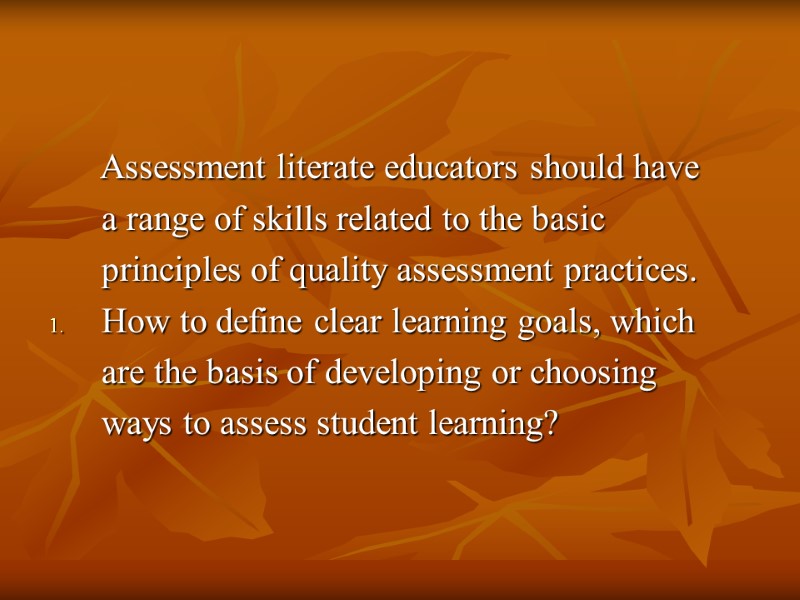 Assessment literate educators should have a range of skills related to the basic principles of quality assessment practices. How to define clear learning goals, which are the basis of developing or choosing ways to assess student learning?
Assessment literate educators should have a range of skills related to the basic principles of quality assessment practices. How to define clear learning goals, which are the basis of developing or choosing ways to assess student learning?
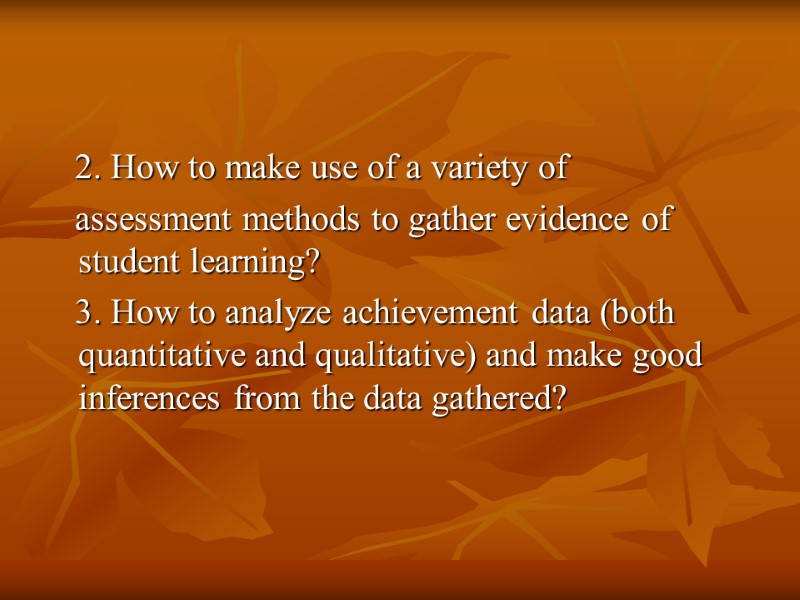 2. How to make use of a variety of assessment methods to gather evidence of student learning? 3. How to analyze achievement data (both quantitative and qualitative) and make good inferences from the data gathered?
2. How to make use of a variety of assessment methods to gather evidence of student learning? 3. How to analyze achievement data (both quantitative and qualitative) and make good inferences from the data gathered?
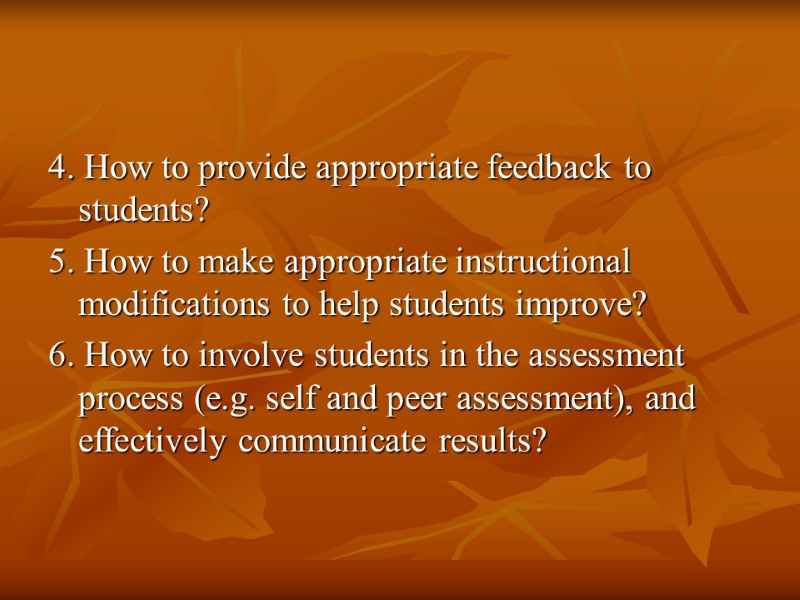 4. How to provide appropriate feedback to students? 5. How to make appropriate instructional modifications to help students improve? 6. How to involve students in the assessment process (e.g. self and peer assessment), and effectively communicate results?
4. How to provide appropriate feedback to students? 5. How to make appropriate instructional modifications to help students improve? 6. How to involve students in the assessment process (e.g. self and peer assessment), and effectively communicate results?
 7. Most importantly, how to engineer an effective classroom assessment environment that boosts student motivation to learn?
7. Most importantly, how to engineer an effective classroom assessment environment that boosts student motivation to learn?
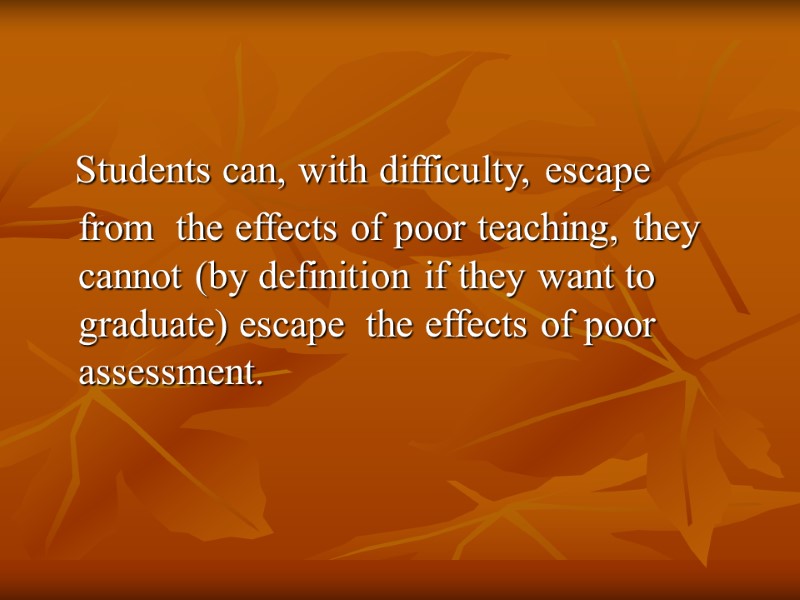 Students can, with difficulty, escape from the effects of poor teaching, they cannot (by definition if they want to graduate) escape the effects of poor assessment.
Students can, with difficulty, escape from the effects of poor teaching, they cannot (by definition if they want to graduate) escape the effects of poor assessment.



































